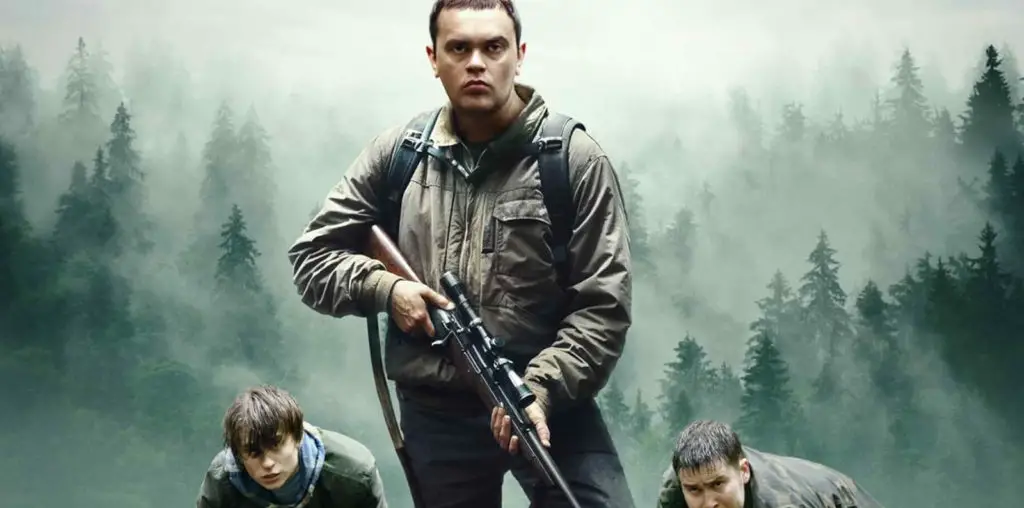
A farmer’s pig is stolen from his farm. He asks his family not to tell anyone that the pig is missing. When another man from the village comes by and asks if the farmer found the missing pig, the farmer shoots him dead. This opening anecdote from one of Guilty Men’s main characters functions as a parable for the movie’s themes of honor, humiliation, and betrayal.
In the village of Güespa in the Colombian department of Santander, people get by despite their distance from urban centers. It’s the kind of place where losing a single pig does a lot of damage to a family’s livelihood. People farm crops and livestock, and a lot of money goes to payoffs to the paramilitaries that dominate the region. In the first few minutes of the movie, four men meet a Colombian paramilitary soldier at a drop-off point in the middle of the woods. It’s clear that none of them are happy with their situation, beholden to what they see as wasteful, greedy soldiers. When their contact is less than respectful, one of them shoots him dead, setting in motion the rest of the film’s events.
It’s a tense opening that demonstrates director Iván Gaona’s talent for drawing suspense out of a situation without beating you over the head with what he’s doing. Even at the emotional heights of Guilty Men—like the movie’s centerpiece, a violent chase through a sugar cane field—it would be fair to describe his style as “mild-mannered.” There’s no bombast or showy camerawork, just slick sound design, well-paced editing, and functional camera placement. Guilty Men’s reserved style impresses me the more I think about it—even though it’s Gaona’s first feature, he had enough skill and confidence to get out of the way of the story he was telling.

“…suspenseful one minute and a dryly funny study of machismo the next.”
The same is true of the performances. Most of Guilty Men’s actors are locals from the town of Güespa who share their characters’ names, and while none of them have teary breakdowns that will make you cry, they all inhabit their roles with a seemingly effortless naturalism. As the four men from the opening deal with the consequences of the killing and cover-up, the B-plot unspools: Willington (Willington Gordillo) is in love with Mariana (Leidy Herrera), but she is about to marry René (René Diaz Calderón), and his lovesickness won’t change her mind. The movie lets glances and situations communicate the characters’ feelings and emotional repression, which build in tandem with the guerilla story.
The issue that has prevented Guilty Men from making a big international splash is its refusal to hold foreign audiences’ hands through its cultural and political specifics. I have an average New York Times skimmer’s understanding of Colombia’s revolutionary guerrilla forces, but I was out of my depth when it came to the film’s story. Guilty Men isn’t a political thriller, but the main characters’ situations, their relationship to the (mostly offscreen) guerillas, and the cultural backdrop will be unclear to people without a working knowledge of Colombia.
It’s important to warn viewers about Guilty Men’s challenging narrative, but it’s also unfair to judge it for not bending over backward to explain what’s happening. It is a Colombian movie, after all. The core story—the halted romance between Willington and Mariana, the tension between the titular “guilty men”—was still pretty clear. If you can put up with some confusion, Guilty Men can be suspenseful one minute and a dryly funny study of machismo the next.

Guilty Men (2018) Written and directed by Iván Gaona. With René Diaz Calderón, Willington Gordillo, Leidy Herrera.
8 out of 10

